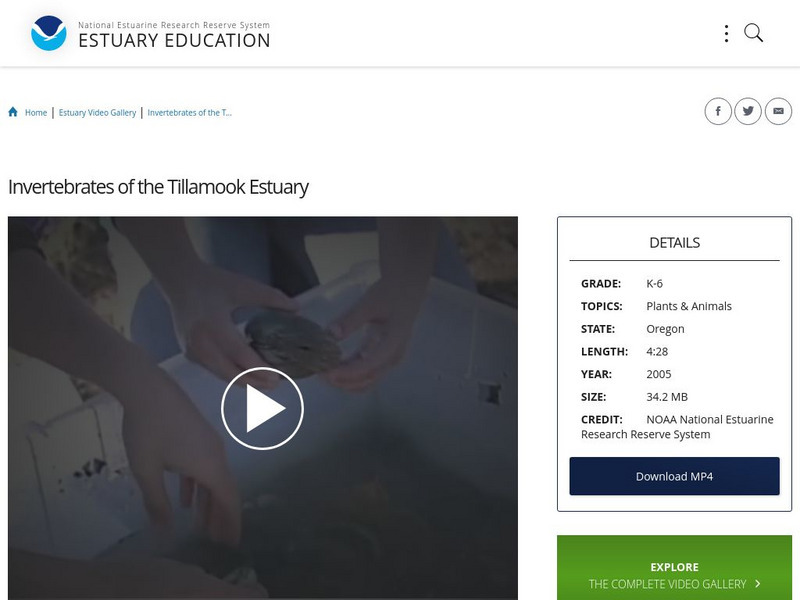Hi, what do you want to do?
Nature League
Invertebrates and Ocean Mixing - De-Natured
It's time to mix things up! Introduce biology scholars to the latest topic in marine research—invertebrates! The third installment in a five-part series of Invertebrates lessons explains the hypothesis that tiny, migrating shrimp are...
Nature League
What Are Invertebrates? - Lesson Plan
Insects, and other invertebrates outnumber vertebrates—segmented-legs down! The first in a five-part series of videos from an Invertebrates series introduces these organisms in all their spineless glory. Each invertebrate phyla takes the...
PBS
The Age of Giant Insects
The largest arthropod that walked on land measured more than two meters long. An intriguing video looks invertebrates throughout the history of Earth. It explains the drastic differences and why scientists theorize they evolved in this...
FuseSchool
Animal Classification
So many animals, so many characteristics—how do we classify them all? A short tour of taxonomy awaits within a helpful Fuse School video on Evolution. Science scholars see how scientists sort animals into the main classes and what traits...
Deep Look
The Snail-Smashing, Fish-Spearing, Eye-Popping Mantis Shrimp
Like tiny Supermen of the sea, mantis shrimp catch their prey using both bullet-like speed and enhanced vision. How do they do it? Young marine biologists discover the amazing adaptations found in the mantis shrimp and how they use them...
TED-Ed
How Do Animals Experience Pain?
Not all animals respond to pain the same way. Thanks to the structure of the nervous systems of different living organisms, vertebrates and invertebrates experience nociception—the sensory nervous system's response to pain.
Bozeman Science
Animals
For every human in the world, there are one million ants! The instructor shows the phylogenetic tree of animals and where they stand compared to other organisms. The video then focuses on vertebrates and invertebrates, exploring what...
TED-Ed
How Does a Jellyfish Sting?
Jellyfish are not aggressive creatures. They simply use their stinging cells as a defense mechanism. Some animals have developed adaptations that prevent them from being affected by a jellyfish's sting. Watch to find out the science...
Sophia Learning
Sophia: Animals: Invertebrates: Lesson 1
This lesson will explain the characteristics of animals that are classified as invertebrates. It is 1 of 4 in the series titled "Animals: Invertebrates."
NOAA
Noaa: Estuary Education: Invertebrates of the Tillamook Estuary
Students learn about Tillamook Estuary invertebrates and their importance in the food web. [4:25]














